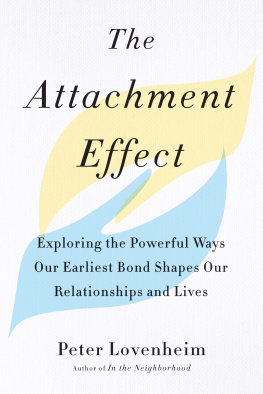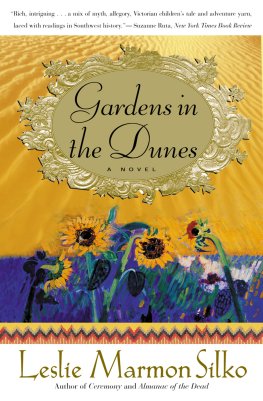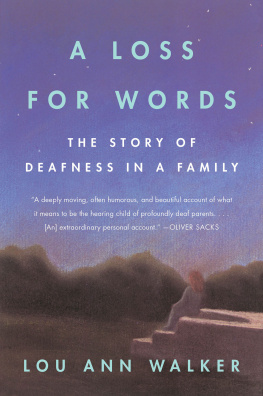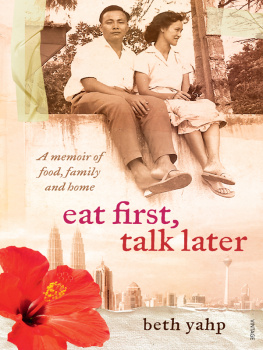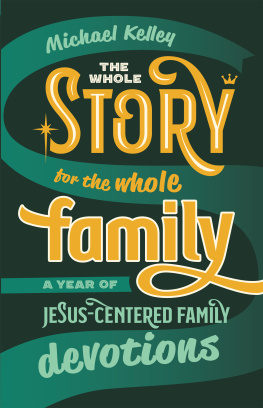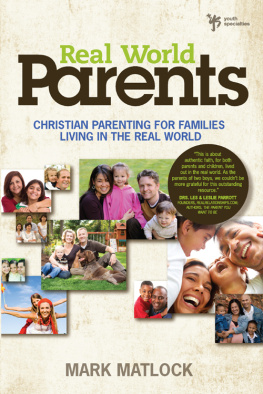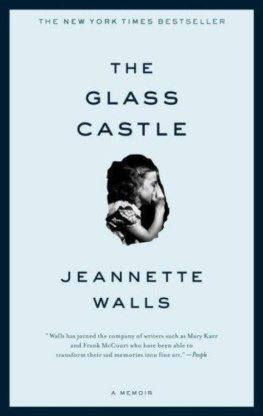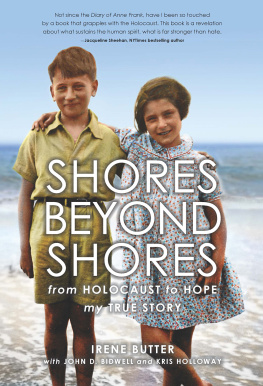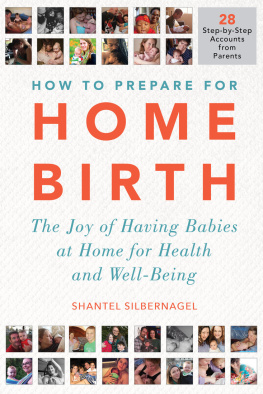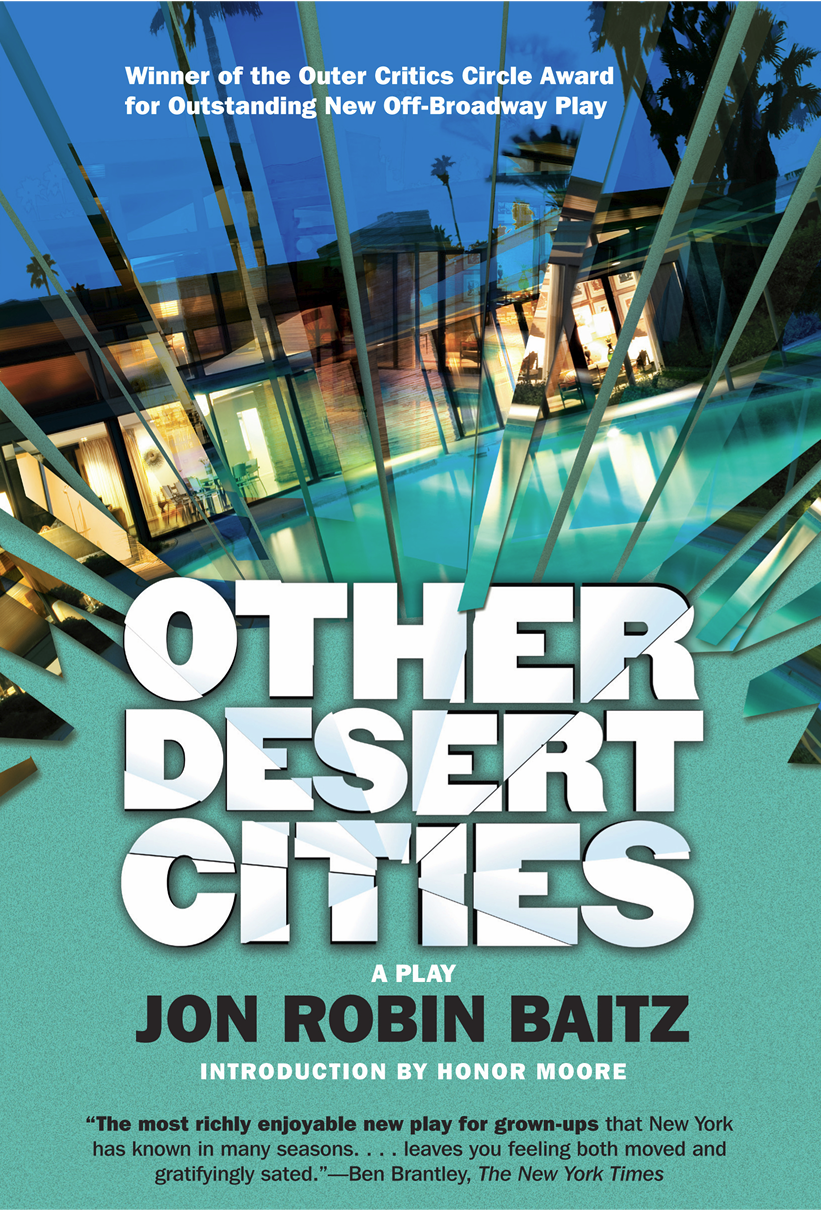
Other Desert Cities
By the same author
Plays
Mizlansky/Zilinsky or, Schmucks
The Film Society
The Substance of Fire
The End of the Day
Three Hotels
A Fair Country
Ten Unknowns
Chinese Friends
The Paris Letter
My Beautiful Goddamn City
Adaptation of Hedda Gabler by Hebrik Ibsen
Screenplays
The Substance of Fire
People I Know
Jon Robin Baitz
Other Desert Cities
A Play in Two Acts
Introduction by Honor Moore

Grove Press
New York
Copyright 2010 by Available Light Productions, Inc.
Introduction copyright 2011 by Honor Moore
All rights reserved. No part of this book may be reproduced in any form or by any electronic or mechanical means, including information storage and retrieval systems, without permission in writing from the publisher, except by a reviewer, who may quote brief passages in a review. Any members of educational institutions wishing to photocopy part or all of the work for classroom use, or publishers who would like to obtain permission to include the work in an anthology, should send their inquiries to Grove/Atlantic, Inc., 841 Broadway, New York, NY 10003.
CAUTION: Professionals and amateurs are hereby warned that Other Desert Cities is subject to a royalty. It is fully protected under the copyright laws of the United States, Canada, United Kingdom, and all British Commonwealth countries, and all countries covered by the International Copyright Union, the Pan-American Copyright Convention, and the Universal Copyright Convention. All rights, including professional, amateur, motion picture, recitation, public reading, radio broadcasting, television, video or sound taping, all other forms of mechanical or electronic reproduction, such as information storage and retrieval systems and photocopying, and rights of translation into foreign languages, are strictly reserved.
First-class professional, stock, and amateur applications for permission to perform it, and those other rights stated above, must be made in advance to Creative Artists Agency, 162 Fifth Avenue, New York, NY 10010, ATTN: George Lane and Simon Green, and paying the requisite fee, whether the play is presented for charity or gain and whether or not admission is charged.
Published simultaneously in Canada
Printed in the United States of America
ISBN: 978-0-8021-9495-4
Grove Press
841 Broadway
New York, NY 10003
Introduction
A daughter returns home for Christmas for the first time in years, bearing the manuscript of a memoir, which reveals a devastating episode in the life of her wealthy Republican family. Her beloved older brother, eldest child of the family in question, was involved in a radical group in the 1970s that bombed a draft center; the explosion killed a man and brought about the brothers suicide. The events, years in the past at the time of the play, emotionally ravaged the daughter; disturbed the upbringing of the younger son, a child when the events happened; opened a schism between the mother and her sister; and shattered the orderly lives of the parents, causing their ostracism from an intimate circle of friends, which included President and Mrs. Reagan.
It was millennia ago that the first actor stood forward from the chorus and the theatre began. In outdoor arenas seating thousands, ancient communities worked out tragedies and contradictions. Think of The Trojan Women of Euripides, in which women in the ruling family of a conquered nation mourn their husbands and sons who died there; of Lysistrata, in which Aristophanes depicts an antiwar sex strike by the women of Athens; of Antigone, in which a daughter battles to give her brother a proper burial. These great plays constructed stories that held their audiences in thrall long enough to affect their emotions, to change their attitudesthe original meaning of catharsis was purification.
As the novel was the product of the rise of the bourgeoisie, so the contemporary memoir is a direct consequence of the revolution that disrupted American cultural life in the 1970s when African American writers, women writers, gay writers, and other non-white or minority writers began to publish, in numbers, the stories of our lives. We wished to speak our own realities rather than allow ourselves to be characterized only by (mostly) white and male writersand we began to speak in memoir. Though fiction and poetry by these formerly outsider populations also moved decisively into the mainstream, it was memoir that flourished, as if fiction might distort reality and the canvas of poetry were insufficiently vast.
Four decades on, the genre whose origins I mark at the publication in 1974 of Maxine Hong Kingstons The Woman Warrior, is still threatening enough to inspire jeers; recently, in the book review of record, a critic, assessing four memoirs, concluded that in the presence of so many inferior examples, prospective memoirists might take a break. Why me? asks the memoirist. Every year thousands of novels and books of poems of debatable quality appear right alongside those considered great or at least good, and no one calls for a moratorium.
Such battles are nothing new in the history of literature, but no literary movement since the Modernists banished the metric line has brought on such conflict. In the last few years, when certain memoirs have been exposed as invention, reports on the perfidy of autobiographical writers have raged across front pages, as if something akin to murder had been committed. Since when have human beings not told lies? Since when have there not been literary hoaxes? Could it be that the intensity of the ruckus has less to do with the prevarication of a few authors, than with cultural resistance to the truths memoirs continue to reveal?
Change is not comfortable, neither is the most influential literature. Every time a truth formerly withheld bursts into view, the dynamics of society alter a little, freeing stories already lived and expanding the range of stories it will be possible to live in the future. Employing dramaturgy, which draws on Greek tragedy (the returning daughter), boulevard comedy (the play is funny), and Arthur Miller tragedy (children challenge their parents integrity), Jon Robin Baitz meticulously unpacks all the ethical dilemmas of the present controversy while constructing a play that turns on the revelation of a truly surprising secret, just like a great memoir. Evenhanded, but never sacrificing a commitment to the truth or to the emotions that bind a family, Baitz allows all the important questions to be asked. When a family is involved, who owns the story? What kind of consequences might require a writer to have a responsibility beyond herself and her commitment to her art? When is the publication of just a book worth the splintering of a family? What is a writer talking about when she says that telling her story is for her a matter of life and death. Is there any such thing as a secret that should be kept?
As the play unfolds, the making of artin this case the publication of a bookbecomes a metaphor for the investigation of the cost of telling of truth inside one particular family. At the same time, a contemporary dramatist reveals to us that we are in the midst of a cultural shift that challenges us to a higher standard of ethics, to greater courage and honesty in that first society where we all begin our lives, the family. I was not the only one in tears when the lights dimmed after the last scene. No one could stop clapping. What a relief, I thought to myself as I walked out into the snowy night. I am not alone after all.
Next page






